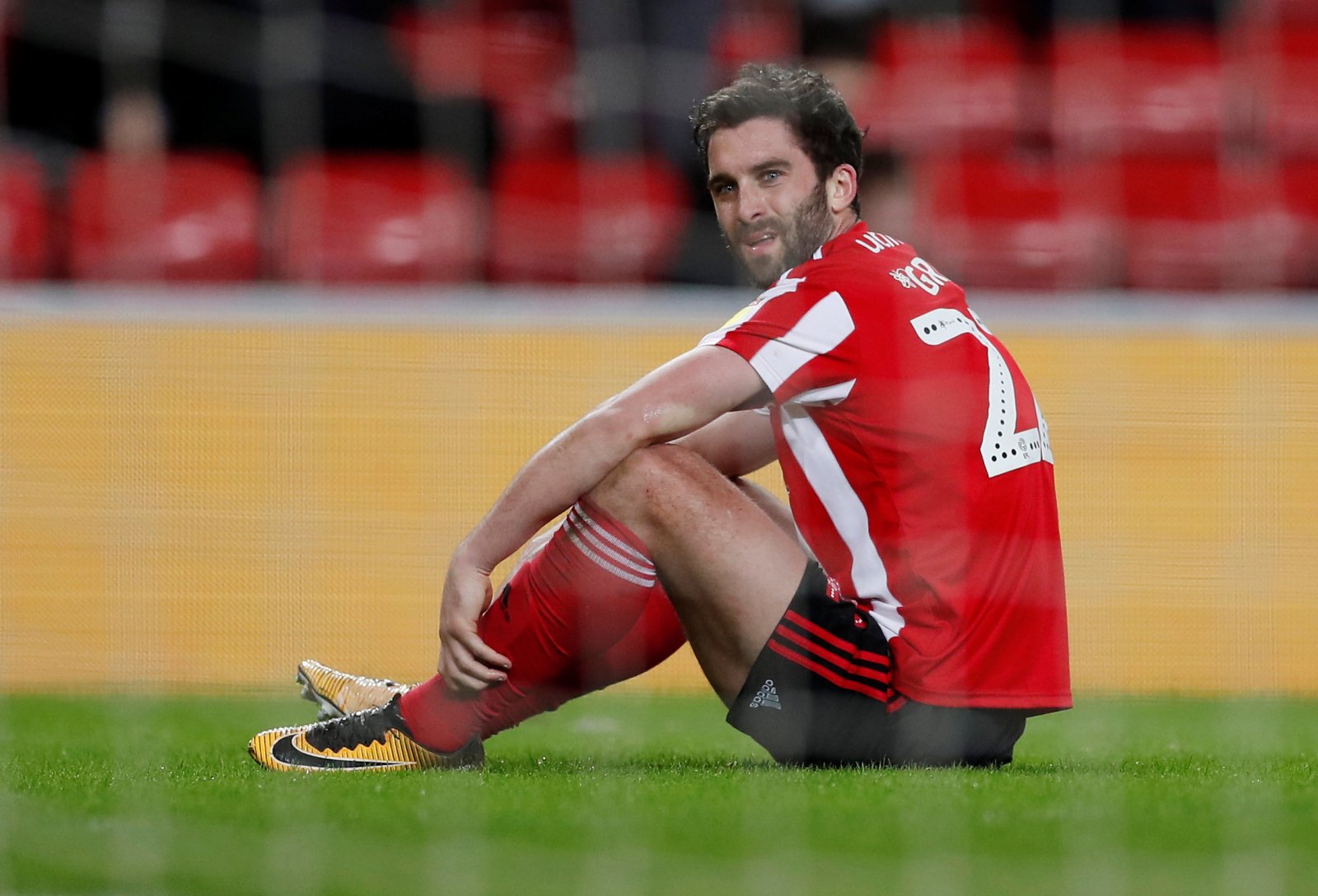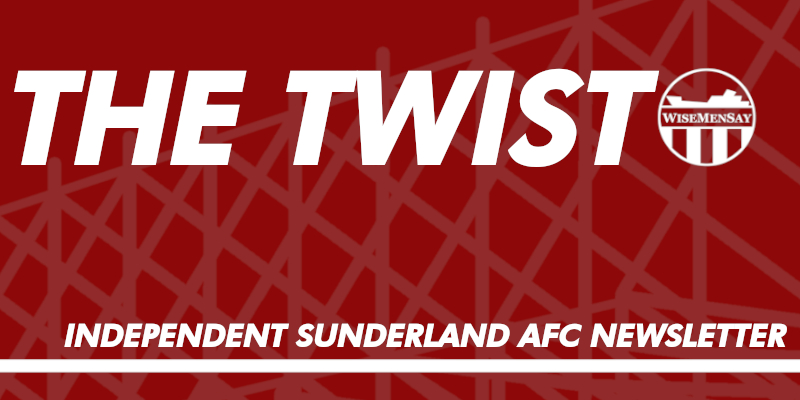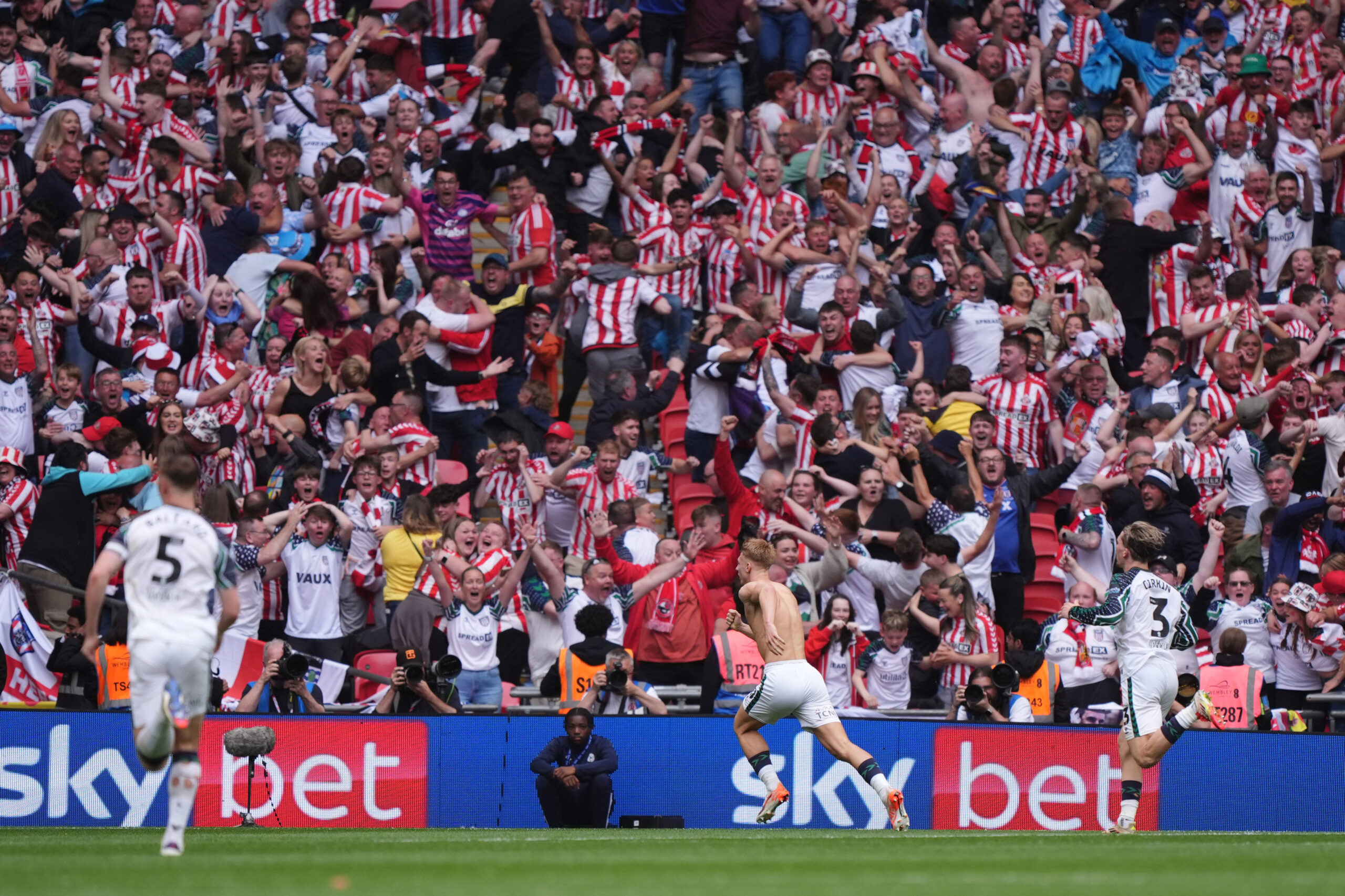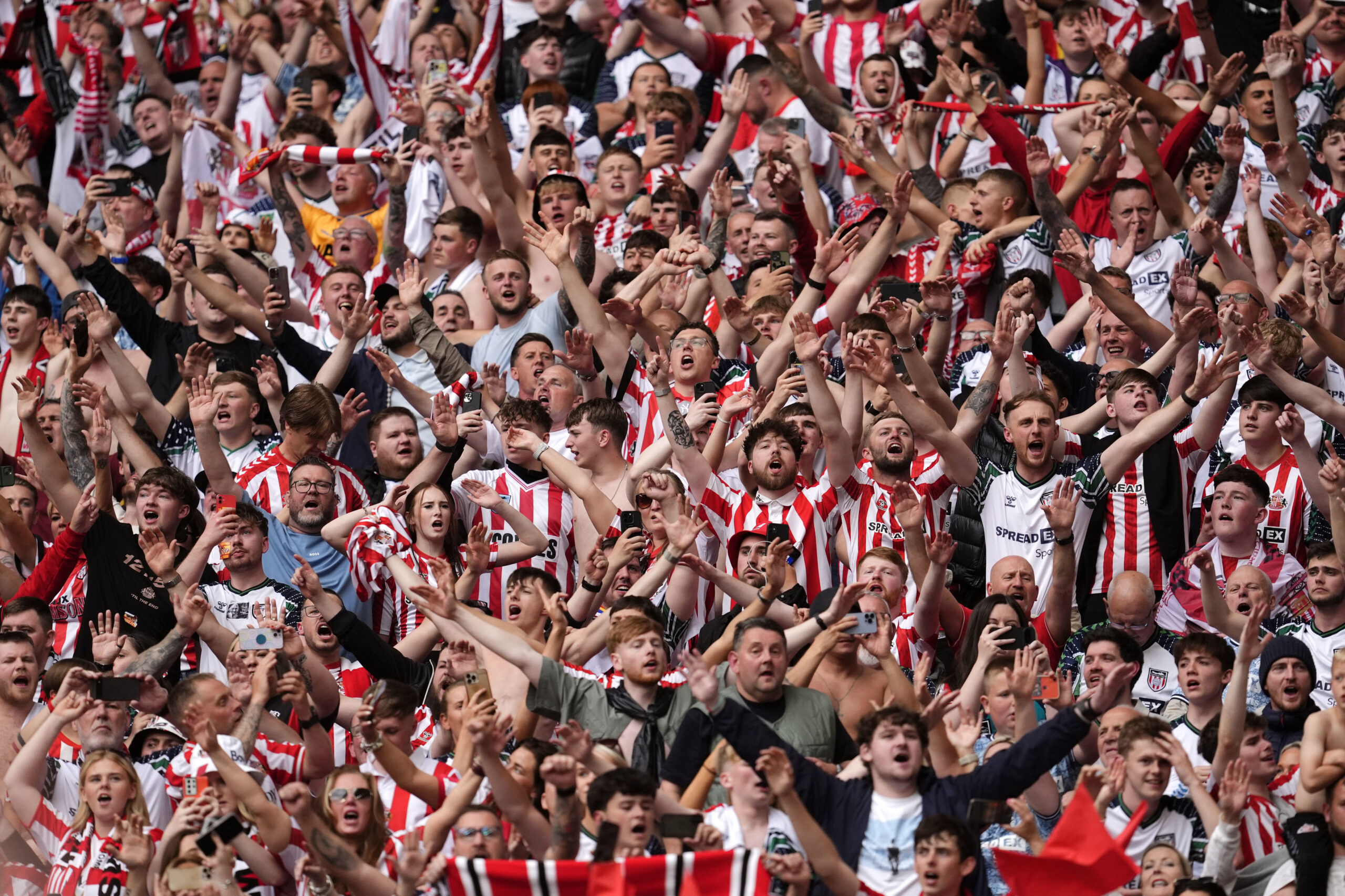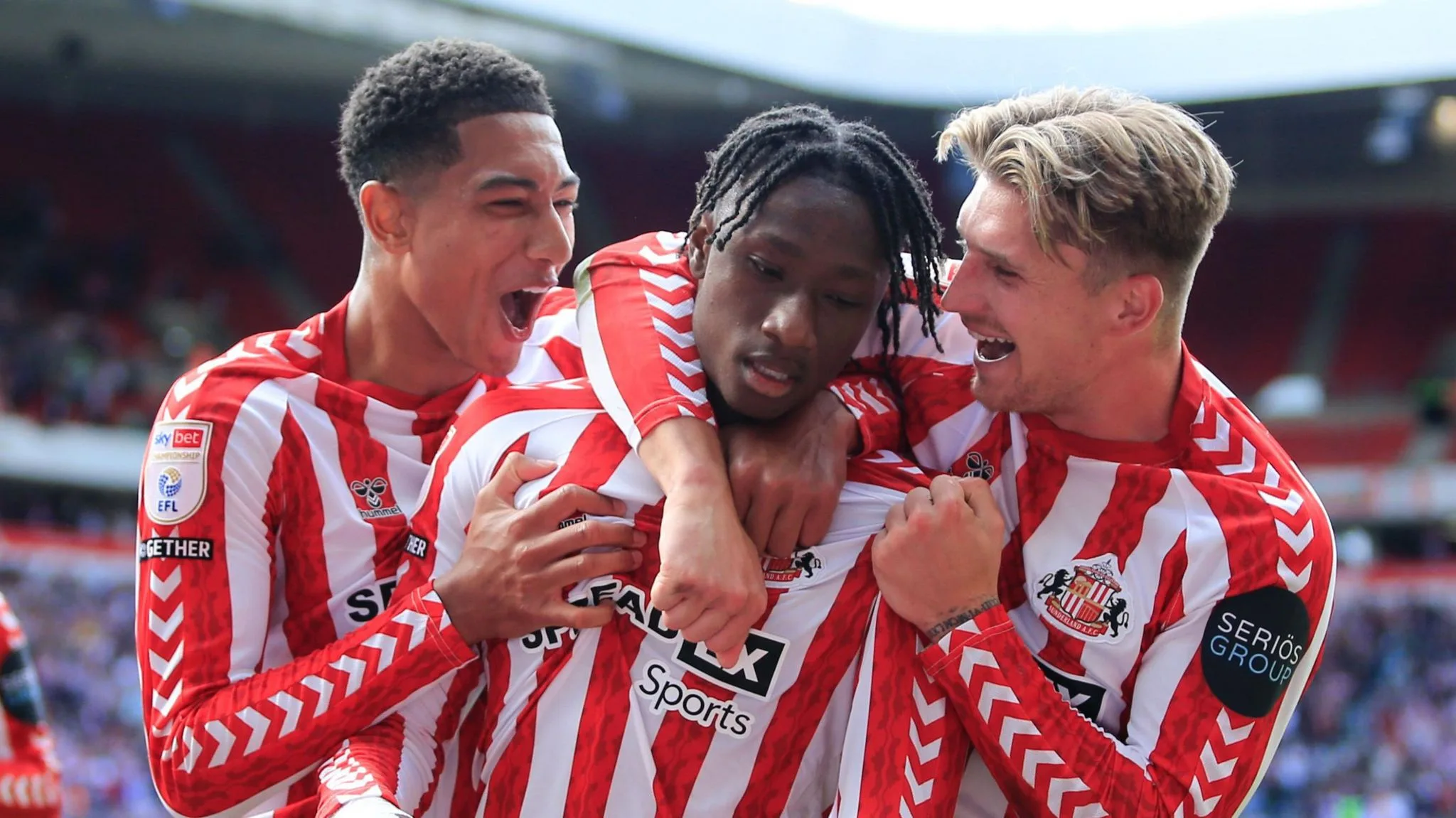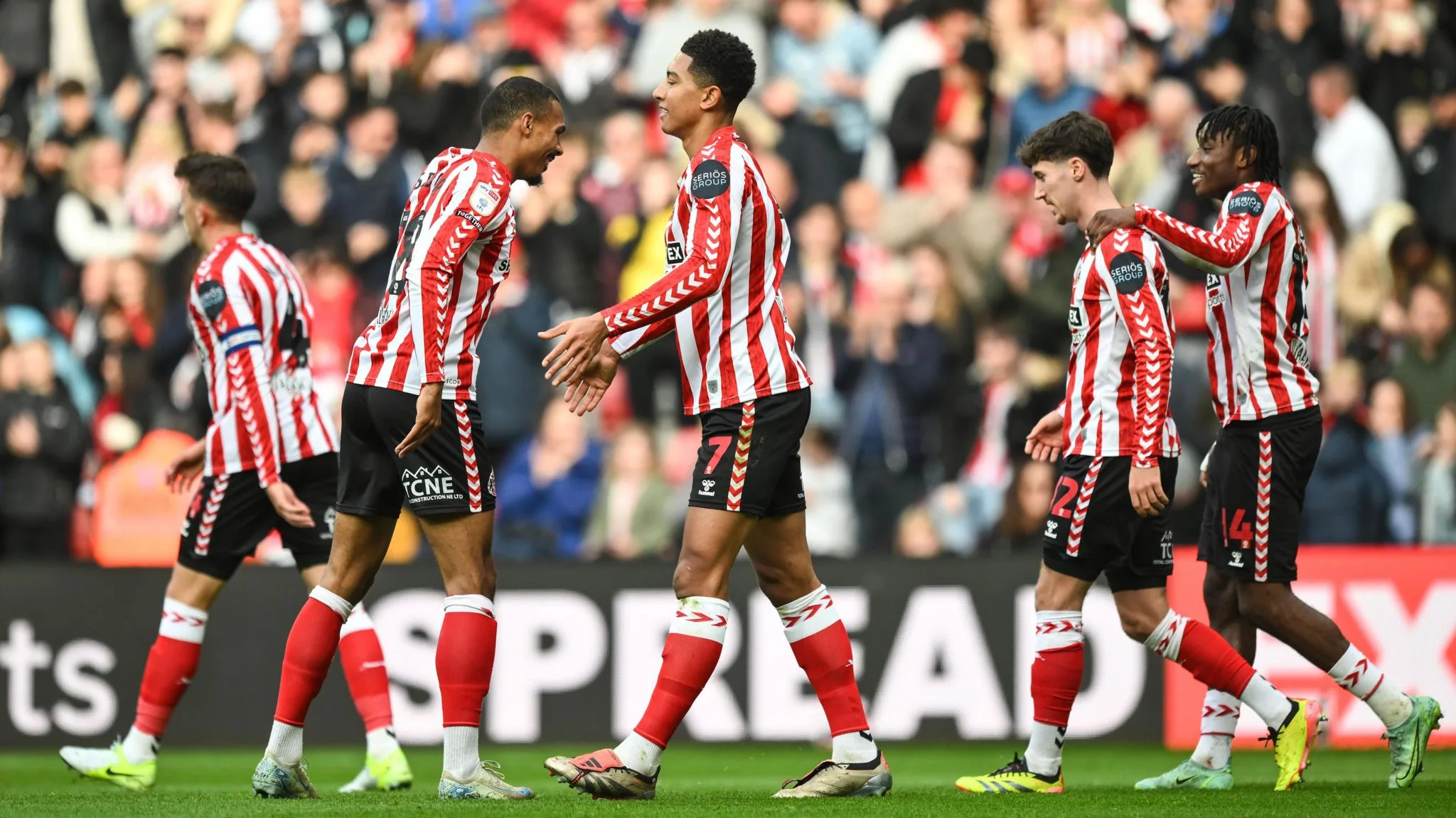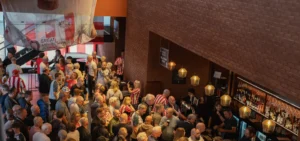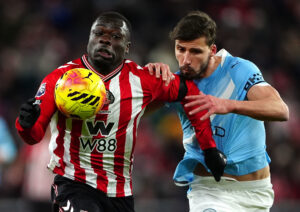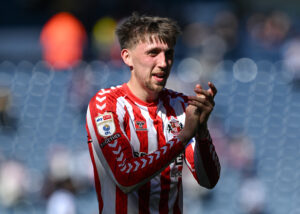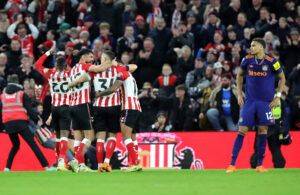Jack Ross and Will Grigg’s Sunderland futures now appear to be intrinsically entwined – how can Ross get the best out of Grigg before it is too late?
Listening to the excellent D3D4 podcast earlier this week, it was interesting to hear a couple of external perspectives on Sunderland. The lads picked up on a comment I made relating to Will Grigg and whether or not our club is “too big” for him, which I wanted to address on what would have been this week’s preview podcast.
Frankie, Rory and I did discuss the subject but, unfortunately, the audio will never see the light of day, rendered unusable by a software malfunction. So, rather than hearing my “sounds like Lee Clark” voice, you can read these words instead, in whichever accent you choose (personal recommendation: imagine Max Power’s dulcet tones).
Anyway, onto the matters at hand, namely Jack Ross and Will Grigg, whose Sunderland futures now appear to be intrinsically entwined. Both men have been discussed at length of late, but hopefully I manage to say something fresh here, particularly in light of the comments made by Ross earlier in the week.
Myself and others – most recently, our own Micky Lough – have said it before, but it bears repeating, Grigg appears to be to Ross what Defoe was to Poyet. By that I mean, more than likely, his main striker and marquee signing will ultimately end up being his downfall. Even the way Ross is talking – I’m referring here to those “damned if you do, damned if you don’t” comments – has a Poyet ring to them.
In classic Ross fashion, they are more subdued than his more passionate Uruguayan counterpart, but there is an element of exasperation with supporters that evokes the tone our former boss assumed not long before his departure.
Returning to the Grigg/Defoe comparison; Poyet didn’t have a clue what to do with Defoe and Ross has completely failed to get the best out of Grigg. As highlighted on the D3D4 podcast, this is quite remarkable. Barring a couple of relatively barren spells in the Championship, you have to go back to his Brentford days (half a decade ago) to find similarly dismal spell at this level, he is as close to guaranteed League 1 goals as you can get.
Ross may not think formations are important, but he surely wouldn’t deny style of play is. The way we play simply does not suit Grigg. We don’t hit him early and we don’t hit him often.
Have we been too big a club for him from day one?
Even with a shakeup in tempo, it would be fair to ask, is it too late for Grigg’s Sunderland career to be turned around? Or, as it appears, is his confidence completely shot? Have we been too big a club for him from day one? Certainly, Grigg has never walked into a situation like the one he did at Sunderland, in terms of the size of the fan base and the scale of the expectation. No disrespect to Wigan, but they are a vastly smaller club.
When you look at Grigg, he is fairly detached from the squad and was (maybe still is) living in a hotel. He looks removed from any camaraderie and, as Rory and I noticed at Portsmouth in the Play Off semi final second leg, has an awkwardness about him when celebrating wins with the squad. He just isn’t part of it.
That is not to say being a bit quiet or separate from the group means you hate being at Sunderland or your confidence is smashed, but when taken into account with his lacklustre performances and the poor return of goals, it does suggest something is amiss.
None of this answers the question of how his current manager goes about rectifying the situation, which he surely must. While we do have the lively Marc McNulty and the physical presence of Charlie Wyke at our disposal, it would seem absolutely incredible if both were preferred to Grigg for any length of time, given their relative records. This is where, regardless of what Ross thinks, formation really does matter.
Before his excellent work for Gooch’s leveller at Ipswich Town, McNulty was almost entirely anonymous in a dreadful team performance. Another example of a failing system, rather than a failing player; McNulty was at best while playing alongside Jonson Clarke-Harris when at Coventry and in that first half at Portman Road, looked completely isolated without a strike partner. Similarly, Charlie Wyke has looked cumbersome and lost as a lone forward, with nobody close enough to him to pick up knockdowns and heavy first touches. It’s easy to forget that, despite his goal at Accrington, Wyke’s goal return has been less than satisfactory since his arrival from Bradford.
What Is The Solution?
There are problems with playing one up front that do not disappear simply by changing the man stood on his own, yards from the supporting cast. What then, is the answer? Playing a front two would seem to benefit each of our forwards, but finding the best way to incorporate a striking partnership continues to be a challenge.
One thing Ross cannot do is to be fooled, as he has been previously, into thinking keeping a winning team and formation together is the way to approach each game. Battering Accrington in the League Cup should be a given for this squad, beating Portsmouth is a very different matter.
That isn’t to say he can’t play two up top, or indeed utilise 4-4-2 this weekend or in any other game. If we can sign the necessary full backs, his version of 3-5-2 could be employed. It must be consigned to the scrapheap in the meantime. Until then, there is a version of 4-4-2 that could potentially function.
I’m going to caveat this by saying I don’t think it is the approach Ross will take, or that it is even the best option available to him, but if he was to use Tom Flanagan as the full back he apparently is on the left, and the so far, so terrible Connor McLaughlin as an orthodox defensive right back, it might just work. A less complex system might help McLaughlin and help improve his form.
A purely defensive back four would give freedom to the likes of McGeady and Gooch on the flanks, as well as the option to use any combination of McNulty, Grigg and Wyke up top. In the middle, the energy of George Dobson and the fit again after injury Max Power appear to offer the right mix of experience and variety required to protect and keep the ball moving quickly.
More likely, however, is a return to 4-2-3-1, with Maguire playing off a lone front man, probably McNulty. If they have the right chemistry and Sunderland win on Saturday, Grigg will be largely forgotten. As long as we’re winning, most will feel it doesn’t matter who’s playing.
However, as we’ve seen with Maguire, you can’t guarantee consistency, and the longer Grigg is left out, the tougher it will become for him. When the time comes, Ross will be forced to turn to our star striker, a man whose goals have shot Wigan to the League 1 title twice; failure to get the best out of him will, ultimately, be the end of him at Sunderland, transform things, and things will look a lot rosier for everyone.
Craig Clark

